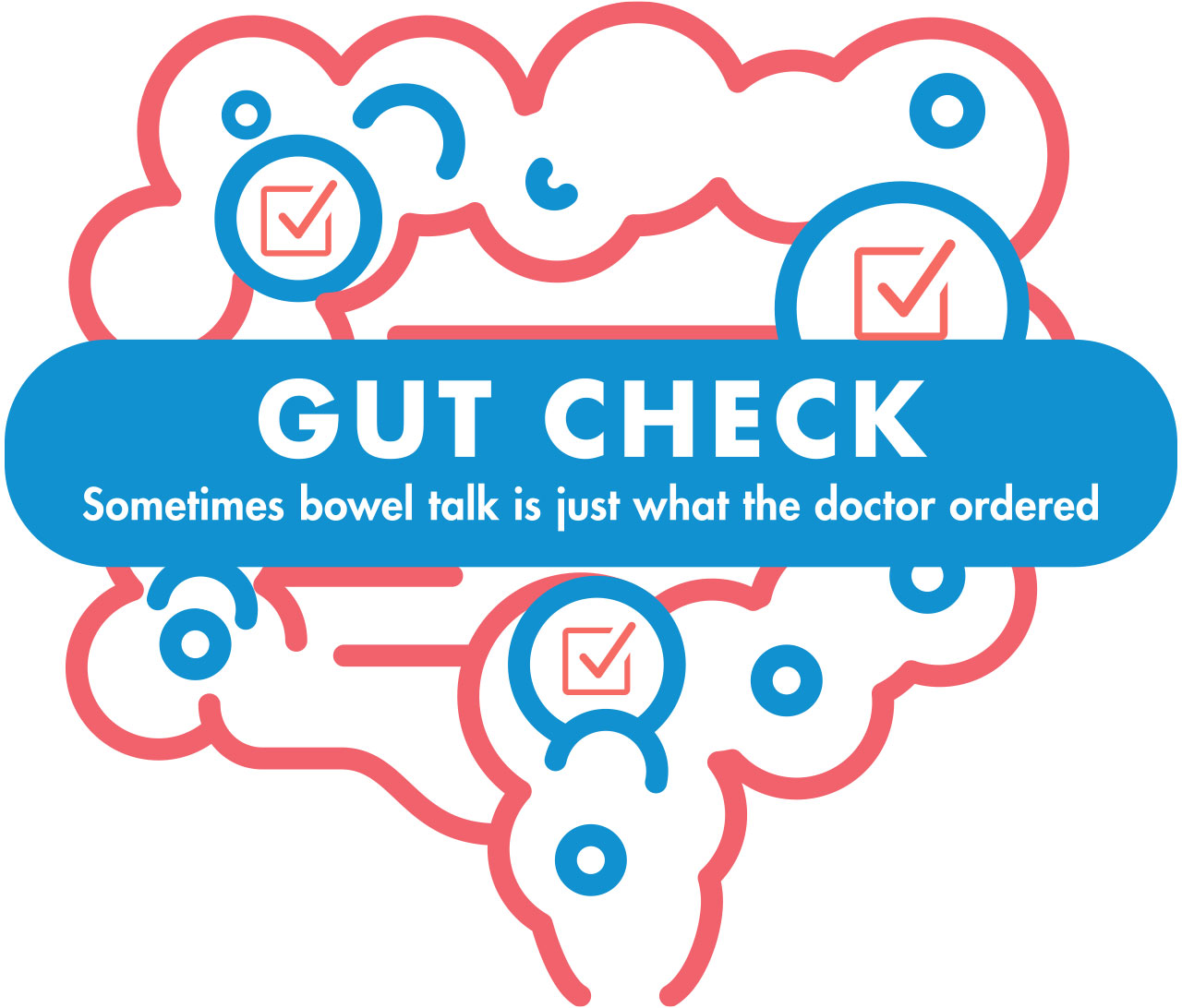
Peter Kaye, MD, is a colorectal surgeon at Englewood Health and part of the Englewood Health Physician Network.

When it comes to bowel troubles, most people keep a lid on the details, assuming no one wants to hear what’s going on behind closed (bathroom) doors. Peter M. Kaye, MD, a colon and rectal surgery specialist in the Englewood Health Physician Network, reassures patients that going to the doctor to get to the bottom of bottom issues doesn’t have to be embarrassing—and can provide tremendous relief.
How do I know when it’s time to see a doctor for bowel issues? Maybe I just have an upset stomach.
Dr. Kaye: As the saying goes, trust your gut! You know your body best, but you may not always act on those gut feelings. If you have temporary discomfort that subsides and doesn’t return, chances are you don’t need to seek help immediately. If you notice anything new and unusual—recurring pain, changes in bowel habits, blood in the toilet—something else is going on and it’s time to call your doctor.
How much information is too much to share?
Dr. Kaye: Nothing is TMI when it comes to bowel issues. Remember, it’s okay to look before you flush. We’ve heard it all: color, shape, consistency, frequency, yesterday’s lunch. Knowing when and where you’ve been feeling pain or discomfort will help your doctor take a closer look. The more we know, the easier you’ll go.
Is there anything I can try at home to keep my gut in check?
Dr. Kaye: Simple lifestyle changes can go a long way. Hydrate, hydrate, hydrate! Eat more fiber, fruit, and vegetables, and less empty carbohydrates. Keep a food diary to see what helps versus what hurts. And get moving! Incorporating exercise into your daily routine will help keep your trips to the bathroom regular.
If I make an appointment, does that mean I’ll need a colonoscopy?
Dr. Kaye: Not necessarily. There are several approaches we can take to evaluate and diagnose bowel issues, depending on the patient and the severity of symptoms. These methods include physical exams, bloodwork, imaging tests, stool collections, and sigmoidoscopy. If other options don’t paint a clear enough picture and a colonoscopy does end up being required, the procedure and the preparation will be fully explained. We’ll work with you to make the experience as comfortable and stress-free as possible.
Posted September 2020

Peter Kaye, MD, is a colorectal surgeon at Englewood Health and part of the Englewood Health Physician Network.
